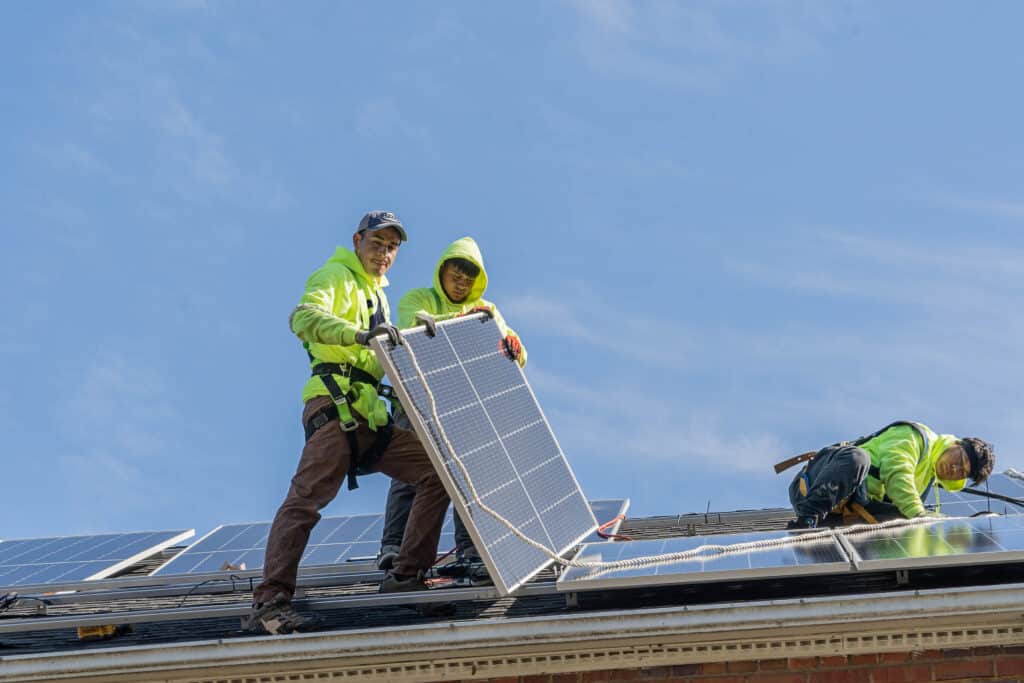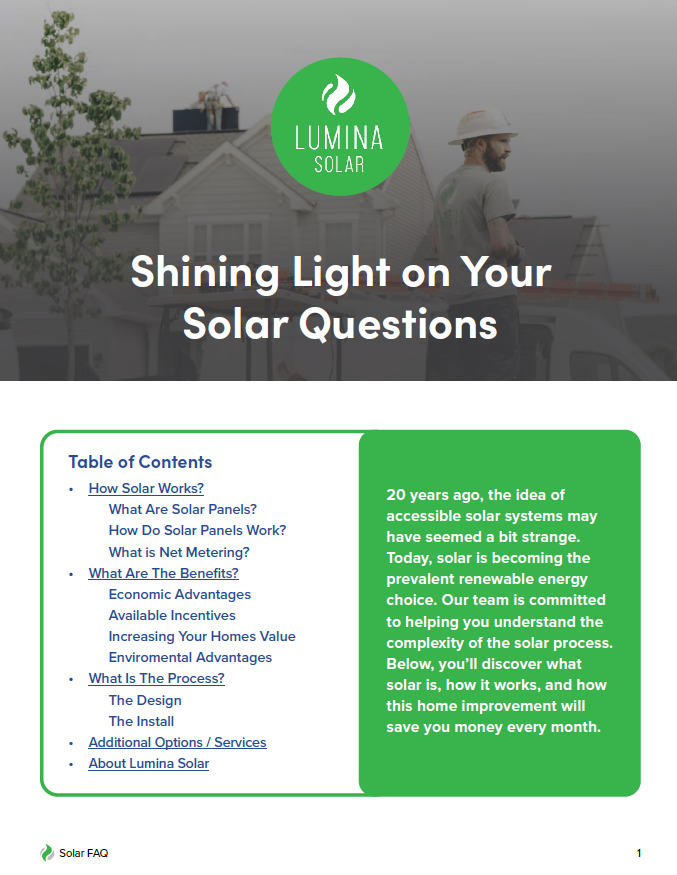As with any large-scale project, estimating the time it will take to install solar panels depends on a variety of factors. It’s not uncommon for customers to be concerned with the entire timeline of installation and setup. Some customers want to ensure the project is completed by a certain time of year or even a specific date, while others are just wondering how long they’ll have workers banging around on their roofs.
Assuming that all paperwork moves through the process seamlessly and the weather fully cooperates, even a fairly large system can be installed in well under one week. But – and this is a fairly large but – there are a number of other factors that come into play after signing a contract that can affect how long the entire process overall will take.
These factors include things like:
- The size of the system
- The size of the crew working on the project
- Local permitting and inspection regulations and timelines
- The local utility company’s processes and procedures
- The weather
In this post, we’re going to take a look at each of these factors, the impact they have on the solar panel installation process, and how working with a local, experienced company will help the process run smoothly.
1. The Size of the System
You may find it interesting that the size of the system itself isn’t typically what determines the length of the solar panel installation process. The installation itself can be broken down into three parts:
- Installing the frame
- Installing the panels
- Connecting the panels to the inverter
Obviously, the smaller the system, the quicker it can be installed. But as we mentioned above, even a fairly large system can be installed in just a few days with a capable crew. This brings us to our next point…
2. The Size of the Crew
Generally, an entire system can be installed in just a couple of days. However, if the crew doing the installation is particularly small or new it may slow down the process. An experienced crew that has worked well together in the past should be able to complete the process fairly quickly. And, of course, the more people there are working on the project simultaneously, the quicker it will go.
3. Local Regulations and Timelines
Before the project can even start, you’ll need certain permits. Depending on your municipality, this could be a quick and easy process or one that could drag on. Working with a solar panel company that knows the ins and outs of your community will help speed the process along because they’ll be familiar with all of the documentation they need to provide from the get-go.
Once the permitting has been completed and the system is installed, local regulations step back into play. Before the system can be turned on, there are likely to be state or municipal (or both) inspections that have to take place. As we mentioned, when you work with a company that’s experienced in both installations and your local community, they could speed up the process. That’s because they’ll have a good idea of exactly how long the process should take, they’ll know exactly how the inspectors like to see things done, and they may be able to pre-schedule the inspections for the day after their anticipated completion.
4. The Local Utility Company
In addition to local permits and building inspectors, your solar panel company will also have to deal with your local utility. An application will likely need to be submitted to the utility and, prior to turning the system on, a representative from the utility will need to come out to the property to give the system a final inspection and install the necessary equipment (such as new meters) on their end.
Depending on the availability of the utility representatives, this process could take anywhere from a couple of days to a couple of weeks. Fortunately, working with an experienced installer could help move this process along since they’ll be able to ensure that everything is done to meet the utility company’s needs, and – as with the local inspections – they may be able to pre-schedule the appointment.
5. The Weather
Finally, when it comes to the actual installation of the system, the weather can play a huge role. A solar panel system can be installed at any time of year, but installations could be delayed due to inclement weather. This is, unfortunately, much harder to predict – although scheduling your installation during the more moderate times of the year could help alleviate any weather-related delays.
Do you have more questions about solar panel installations? Check out our new guide, Frequently Asked Questions About Going Solar, or contact us today to get started on your solar panel installation project.



